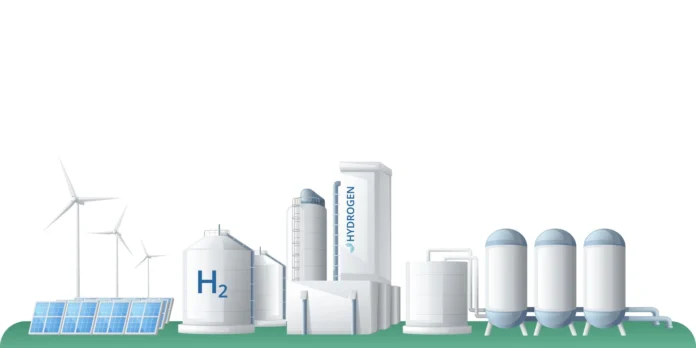Four-fifths of the world’s energy comes from hydrocarbon-based energy sources, resulting in greenhouse gas emissions and contributing to climate change. Many experts are turning to hydrogen in transitioning to a more sustainable and low-carbon future. It is the most abundant element in the universe and has immense potential to replace conventional fossil fuels. As a fuel, it produces only water as a byproduct, making it a clean and emissions-free alternative.
According to the International Energy Agency (IEA), hydrogen could provide up to 18% of the world’s final energy consumption by 2050, reducing global CO2 emissions by up to 6 Gt per year. The IEA also estimates that a global hydrogen economy could generate $2.5 trillion in annual revenue by 2050.
Hydrogen could provide up to 18% of the world’s final energy consumption by 2050, reducing global CO2 emissions by up to 6 Gt per year. The IEA also estimates that a global hydrogen economy could generate $2.5 trillion in annual revenue by 2050. – IEA
Several countries and companies are already making strides towards a hydrogen-based economy. In 2014, three years after the catastrophe, then-Prime Minister Shinzo Abe committed Japan to become a “hydrogen society” an initiative to promote the use of hydrogen in various sectors, including transportation and power generation. According to Institut Montaigne, Japan’s hydrogen society will be based on the idea of a future energy system in which hydrogen will play a central role as an energy vector for all of Japan’s economy. According to the IEAs 2022 World Energy Outlook, Australia is expected to become the second largest net exporter of low-emissions hydrogen by 2030 and the largest by 2050.
In Europe, the European Union’s (EU) Hydrogen Strategy aims to install at least 40 GW of electrolysis capacity within the EU by 2030, producing up to 10 million tons of renewable hydrogen per year. The strategy also includes plans for a regulatory framework to ensure the safety and reliability of hydrogen infrastructure.
Several major companies have also announced plans to invest in hydrogen. In December 2020, Hyundai and INEOS announced a partnership to promote the use of hydrogen in the transportation sector. In January 2021, Siemens Energy and Mitsubishi Heavy Industries announced a partnership to develop hydrogen technologies.
Challenges in using hydrogen as fuel
However, the widespread use of hydrogen as a fuel source still faces several challenges. One of the biggest challenges is cost. Currently, the cost of producing green hydrogen is relatively high compared to traditional fuels, making it less competitive.
Currently, the cost of producing green hydrogen is relatively high compared to traditional fuels, making it less competitive
Another challenge is the lack of sustainable infrastructure for hydrogen production, storage, and transportation. While some businesses are investing in the necessary infrastructure, it will take years to build a robust hydrogen supply chain.
In addition, hydrogen production can still generate emissions if the energy used in its production is not from renewable sources. Currently, most hydrogen production relies on fossil fuels, which negates the environmental benefits of using hydrogen as a fuel source.
What’s next
In order to address these challenges, governments and businesses need to work together to invest in research and development to reduce the cost of producing hydrogen and improve the efficiency of hydrogen technologies. They also need to invest in building the necessary infrastructure to support a hydrogen-based economy.
While the transition to a hydrogen-based economy may not happen overnight, the potential benefits for reducing greenhouse gas emissions and creating a more sustainable future are too great to ignore. With continued investment and collaboration, a hydrogen-based economy could become a reality in the near future.





